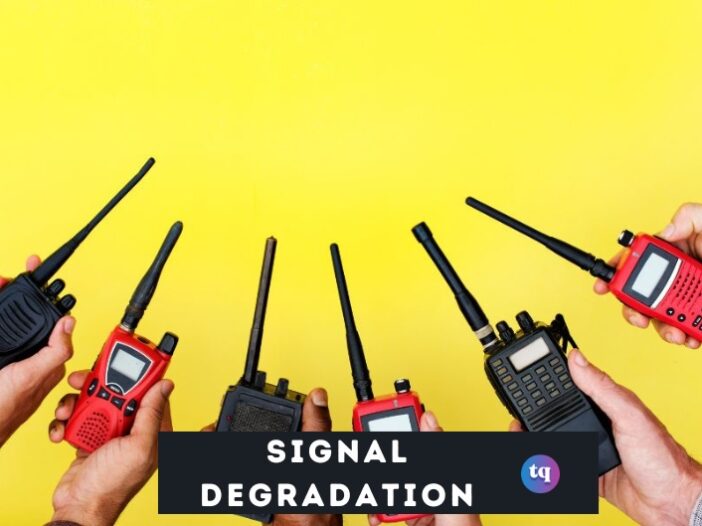
There are many industries that benefit from two-way radios, as these devices offer reliable communication for sectors like construction, law enforcement, and event management. These radios keep teams connected, ensuring efficiency and safety during various operations. However, users often face challenges with signal degradation, which can hinder effective communication. Understanding the causes of signal degradation in two-way radios is crucial for maintaining clarity and connection in critical situations.
Table of Contents
Physical Obstructions
Physical obstructions can significantly impact radio signals, with buildings, trees, hills, and other structures blocking or weakening the transmission. In urban environments, skyscrapers and dense architectural layouts often disrupt signals. This interference reduces two-way radio range and clarity, affecting communication quality.
The materials used in construction also play a role in signal disruption. Metal and concrete structures cause reflections and absorb signals, leading to weak reception. Radio users in industrial settings often encounter this when operating in large warehouses or factories.
To combat these issues, choosing strategic communication locations is essential. Operating in open spaces with fewer barriers improves signal strength and clarity. Additionally, understanding the layout of an environment before beginning a project aids in planning effective communication strategies.
Weather Conditions
Weather conditions also impact two-way radio communication. Rain, fog, and snow disrupt radio waves, reducing effectiveness. This is especially true in outdoor settings where environmental factors frequently change.
Heavy rain can absorb and scatter radio waves. Similarly, fog reflects signals, causing interference. Snow, while less impactful than rain, still contributes to signal attenuation. Recognizing how weather conditions affect radios helps in planning and adapting communication strategies accordingly.
Monitoring weather reports and adjusting communication plans based on forecasts can help prevent disruptions. This proactive approach ensures that teams remain connected, even in adverse weather conditions. Adapting to these changes maintains effective communication in any situation.
Frequency Interference
Many devices operate on similar frequencies, leading to overlapping signals. This overlap results in excess noise and reduced clarity, complicating communication efforts.
In crowded environments, numerous devices can compete for bandwidth, causing frequency congestion. This congestion is common in urban settings where multiple radios are likely to operate simultaneously. Identifying less crowded frequencies and channels allows teams to enhance their communication clarity.
Skipped Radio Equipment Maintenance
Proper equipment maintenance is vital to addressing signal degradation. Over time, radio components wear down, affecting the device’s performance. Regular inspections and maintenance prevent these issues and ensure optimal functionality.
Battery life is another crucial aspect of radio performance. Weak or failing batteries lead to reduced signal strength. By making sure their radios have fully charged and well-maintained batteries, teams can enhance communication reliability. This simple yet effective step prevents unexpected disruptions.
Equipment calibration and software updates are also essential. Keeping radios updated with the latest firmware and recalibrating them regularly ensures top performance. Understanding the causes of signal degradation in two-way radios is essential for maintaining clear communication across various industries. Organizations can provide reliable connectivity and seamless operations by considering these elements and implementing proactive measures to address them.